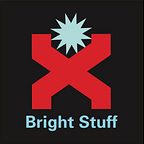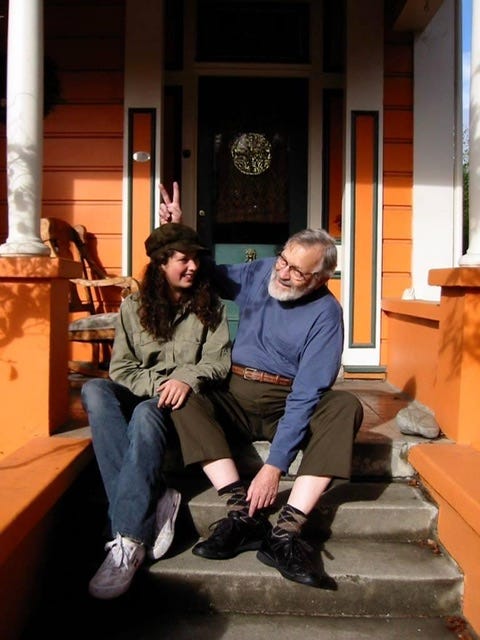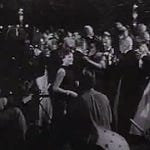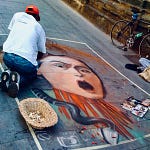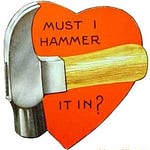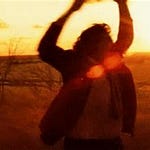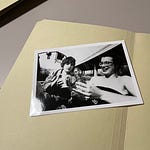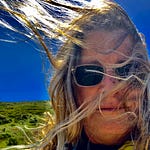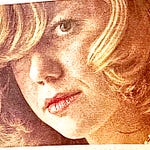I’m on vacation this week! I hope you might enjoy a throwback: my interview with my late dad, Bill Bright, and his amazing stories.
This week I am thinking of my father, Bill Bright, and what he would have said about our lives right now.
Bill joined me twice on my Audible “In Bed” podcast— to talk about the the taboo origins of various United States place names. He was a place name research expert, and you will be amazed at some of the things he found out!
He also sang me Coyote songs about finding your erotic Soulmate, and told me how the word "Squaw" travelled so far, and tragically, from its origin as an Algonquin morpheme.
Take a listen!
I’d love it if you’d consider subscribing to my Stack. I publish 4x a week, with a podcast every Friday.
My father Bill Bright was a linguist, poet— a great whistler and singer— and he was fascinated by “forbidden speech” and how it changed the names of the places we live in. He included this history, very frankly, in his book, "Native American Place Names.”
I know how many of of my readers remember and miss Bill. I love to hear his voice. In this recording, Bill talks about the secret Wiyot origins of small town called Loleta in Humboldt County . . . Not for tender Bowdlerized ears!
Bill explains how Reverend Bowdler changed every mention of “cock” to “rooster,” as part of his great campaign to clean up Shakespeare and all the rest.
Another special location mystery: Have you ever traveled a California Mountain tunnel in the California Sierras, called Tunemah Pass?
It was named by furious Cantonese-speaking Chinese workers who were press-ganged into building that road. They hated their foreman, a cruel and sadistic enforcer.
What does "Tunemah" mean? Bill couldn’t persuade his Cantonese-linguist colleagues to talk; they kept demuring: "Bill, we can't talk about it, it's too vulgar.”
Finally, he met one of his old students who cracked. "Thomas,” he said, “You are my last hope. You must tell me!”
I’m not going to spill here— you have to hear it— just don't tell the rangers in Kings Canyon Park!
Our conversation took a serious turn when Bill discussed how the word Algonquin word “squaw" has been used, defined, exploited, and banned through the years as a place name . . . It's quite a complex story. Few know as much about this linguistic/political history as Bill did.
“Papoose," “Redman,” the Cigar Store Indian mascot— all the examples we know to be so condescending and riddled with ugly history. Since our podcast was published, my old high school, University High in Los Angeles, finally changed their athletic team brand from the “Warriors” to the Wildcats, after decades of protest that began in the sixties. The administration always said, “Why are you so sen-si-tive?
I guess they finally figured it out.
Poet Paula Gunn Allen was so eloquent about how people turn “names” against each other. She and Bill exchanged a correspondence, which he quoted in his essay, The Sociolinguistics of the S- Word: Squaw in American Place-names:
The Pueblo Indian poet and literary scholar Paula Gunn Allen, who was born and raised in New Mexico, goes to the heart of the matter.
She has written that "The only derogatory name I can think of, is Indian, as in ‘You know how those Indians are,' or 'He's an Indian.’
In tone and demeanor, it's a word of contempt, dismissal, stereotype, discount, denigration.
Another such term I heard a lot was they and them. Anyone who has lived in Indian Country can recall hearing Anglos say, 'Oh, he's one of them.'
Allen continues: "Come to think of it, there was another derogatory term used for Navajos, and that was Navajo."
(1997).
The second time I interviewed my dad, — we talked about “Tijuana Bibles,” which were the first erotic material Bill ever saw, as a grade schooler in the 1930s of Oxnard, California.
These things make an imprint!
He also remembered when he and my mother were overseas for his Army service, and smuggled home a copy of D.H. Lawrence’s novel Lady Chatterly’s Lover and Henry Miller’s Tropic of Cancer trilogy. —So many GI’s of that period have that memory!
We talked about Bill helping me edit Best American Erotica, and the contemporary authors he admires today.
Finally, I asked Bill to share California tribal Coyote songs and stories with me that are far more sexual (and indifferent of “white-people’s-attitudes”) than you’ve probably heard in the mainstream press.
Coyote broke every rule. He was completely amoral, unscrupulous, lustful, and lands in the shit every time he tries to get laid. His hubris and appetites always get him in trouble. Yet he lives to do it all over again!
Many of Coyote stories were made to tell to children, to entertain and educate in the wintertime, so Grandma could get you to sit down and behave yourself instead of driving her nuts in the kitchen.
Listen to the Karuk story about Coyote’s penis that wraps around his neck, Tick Woman’s story with the Eels, and “Well, I’ll Never Do Anything Like That Again!”
Finally we turned to singing.
Traditional “love songs" in Karuk are not like American pop songs. A love song is a magical medicine song, you sing it to have supernatural power over a lover you wanted to draw toward you— To enchant them, to regain their attention.
One older woman my dad worked with on the Karuk Language, Nettie Rubin, didn’t have a daughter, but she taught Bill a song when he was young, a woman’s song to attract a man. “I’m willing them to you, my inheritance to you.”
One of them is the song of the Bitch Dog, a woman who wanted lots of men. Then, Bill sang it! I wish he had recorded a whole album of Nettie’s Love Songs!
I listen to this interview all the time, at least once a year. It’s as if he’s right in the room with me. I wish I had done the same with my mother, although I have to laugh at the notion, because she was much shyer with wide world. They both had so much say.

